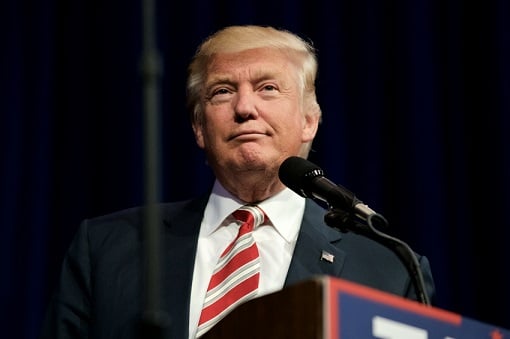A ratings agency says lower corporate taxes could be good for Fannie and Freddie in the long run – but might force the GSEs to get more cash infusions from the Treasury in the short term

A reduction in the corporate tax rate from the current federal rate of 35% could spell trouble for Fannie Mae and Freddie Mac, according to a new report from Fitch Ratings. Specifically, it could send the GSEs running to the Treasury for another bailout.
President Donald Trump is expected to push for lower corporate taxes. At a meeting with airline executives Thursday, Trump said his administration would be “lowering the overall tax burden on American businesses big league.” He’s also previously spoken of cutting the federal statutory corporate tax rate from 35% to between 15% and 20%, according to a HousingWire report.
But according to Fitch, a reduction in the current corporate tax rate could mean that Fannie and Freddie would face “significant” deferred tax asset (DTA) writedowns.
“Currently, these government-sponsored enterprises’ … capital buffers are required to shrink to zero by Jan. 1, 2018; therefore, a DTA writedown would likely trigger them to draw from the US Treasury to cover these losses,” Fitch said.
“The GSEs may not have sufficient capital reserves to avoid a net worth deficit in 2017 if they incur a loss in a quarter, and after Jan. 1, 2018, they will have no capital reserves to absorb losses,” Fitch said. “This would require them to draw funds under their Senior Preferred Stock Purchase Agreement (SPSPA) with the US Treasury to avoid being placed into receivership.”
Fitch said, however, that its current view of the GSEs’ ratings wouldn’t change unless capital draws from the Treasury started approaching their cap, which the ratings agency called “highly unlikely.” And a corporate tax cut could even be a good thing for Fannie and Freddie in the long run, Fitch admitted – provided the GSEs could take the initial strain.
“While a tax cut would enhance the GSEs’ long-term profitability, it would also produce a significant one-time hit to earnings,” Fitch said.
If the corporate tax rate dropped to 20%, for example, Fitch estimated that Fannie and Freddie would have to write down their DTAs by $15 billion and $8 billion, respectively.



